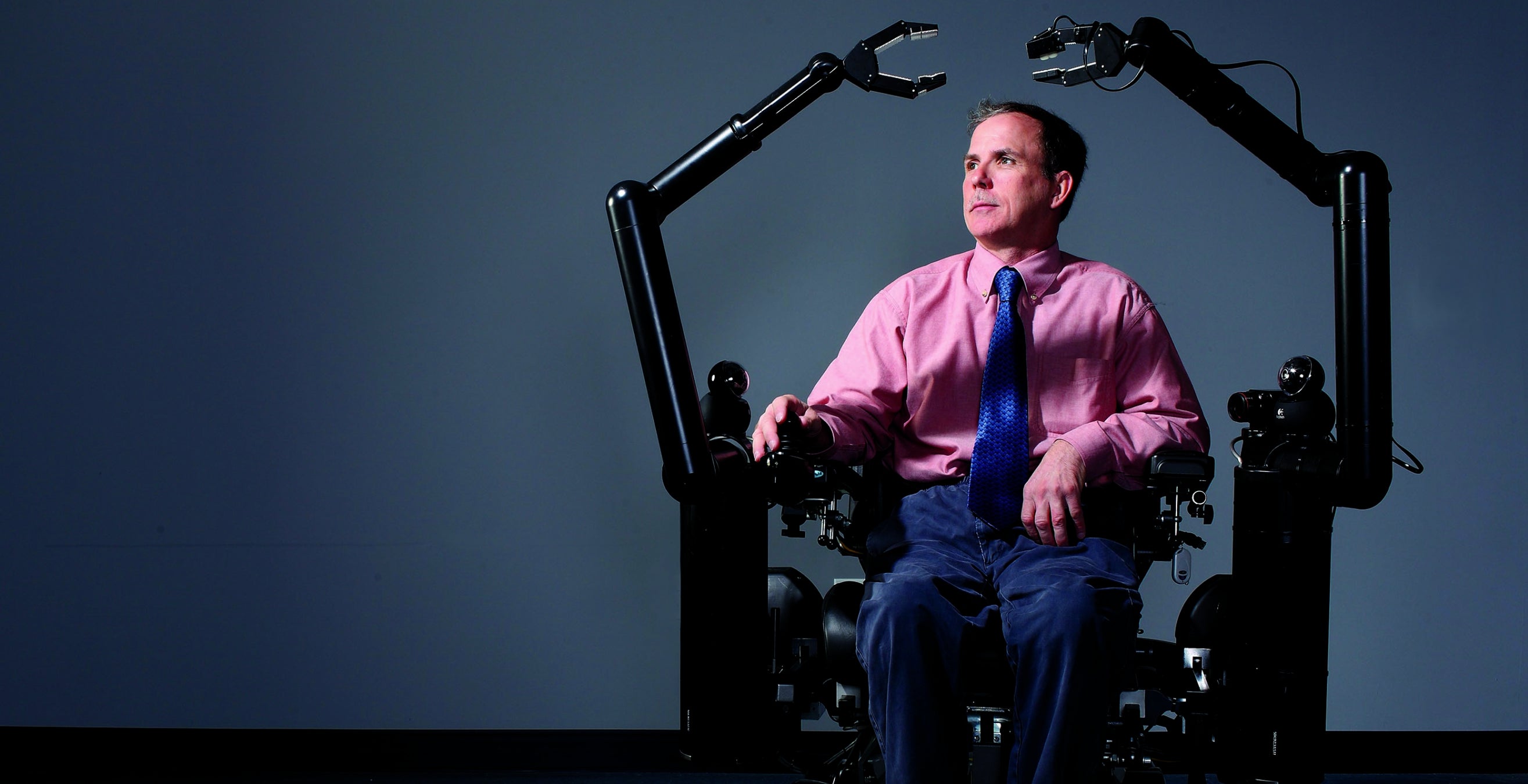Rory Cooper is a man in constant motion. On a recent morning, he moved through the hallways of his laboratories, scrolling through his Blackberry while greeting passerby on his way to monitor research projects and mentor students. But these aren't your typical laboratories. Cooper's "office" is the Human Engineering Research Laboratories (HERL), located in an entrepreneurial sector of Pittsburgh's Bakery Square development.
Cooper propels through HERL in a state-of-the-art wheelchair he engineered. As he rolls along in the warehouse-sized building, he passes a series of laboratory spaces where work is in progress to help those who know what it means to struggle with activities of daily life. There's a residential kitchen that uses wireless sensing and remote-controlled appliances and faucets with automatic shut-off. There are digital assistive or "cueing" devices to aid those who are in wheelchairs or have health issues such as dementia. There's a computerized KitchenBot robotic arm that maneuvers to help with opening cupboards, accessing food, cooking, and cleanup. There's a biomechanics and SmartWheel lab that works on improved propulsion and mobility for wheelchairs. There are labs that engage in virtual reality projects, ergonomics, sports technology, and brain-machine interfaces. There are even HERL researchers who have developed a tool to measure sidewalk and surface conditions, and have created a mobile app that wheelchair users can access to plan their routes and safely navigate byways worldwide.
All of these innovations have emerged with Cooper's guiding hand and creative vision. None of this, however, might have happened without the accident that occurred on a street in Germany more than three decades ago.
One summer afternoon in 1980, Rory Cooper's full-bodied dreams were shattered on hard pavement. At about 2 p.m. on a sunny July day, he briskly pedaled a bicycle along Berliner Strasse in the town of Worms. He was a U.S. Army sergeant stationed in Germany, and he was eager to see the love of his life, Rosemarie Emans, an 18-year-old student and German native who worked in Frankenthal, about seven miles away. Other bicycles and vehicles whizzed past Cooper as he navigated the bike lane. Then, in an instant, a bus dispatching passengers forced the army sergeant into oncoming traffic. A delivery truck struck his bike head-on. After the collision, Cooper tried to get up from the pavement, but he couldn't move his legs. He lost consciousness as an ambulance arrived.
That day—July 23, 1980—Cooper suffered a severe spinal cord injury. The accident left him paralyzed from the waist down. He had multiple internal injuries, and the prognosis was uncertain. Once an avid runner and fitness buff, he became a man simply fighting to survive.
Months of treatment and rehabilitation followed, but what could easily have been defined as the worst day in Cooper's life instead brought out the best in him. He gained a new purpose, borne of what many might view as an insurmountable tragedy.
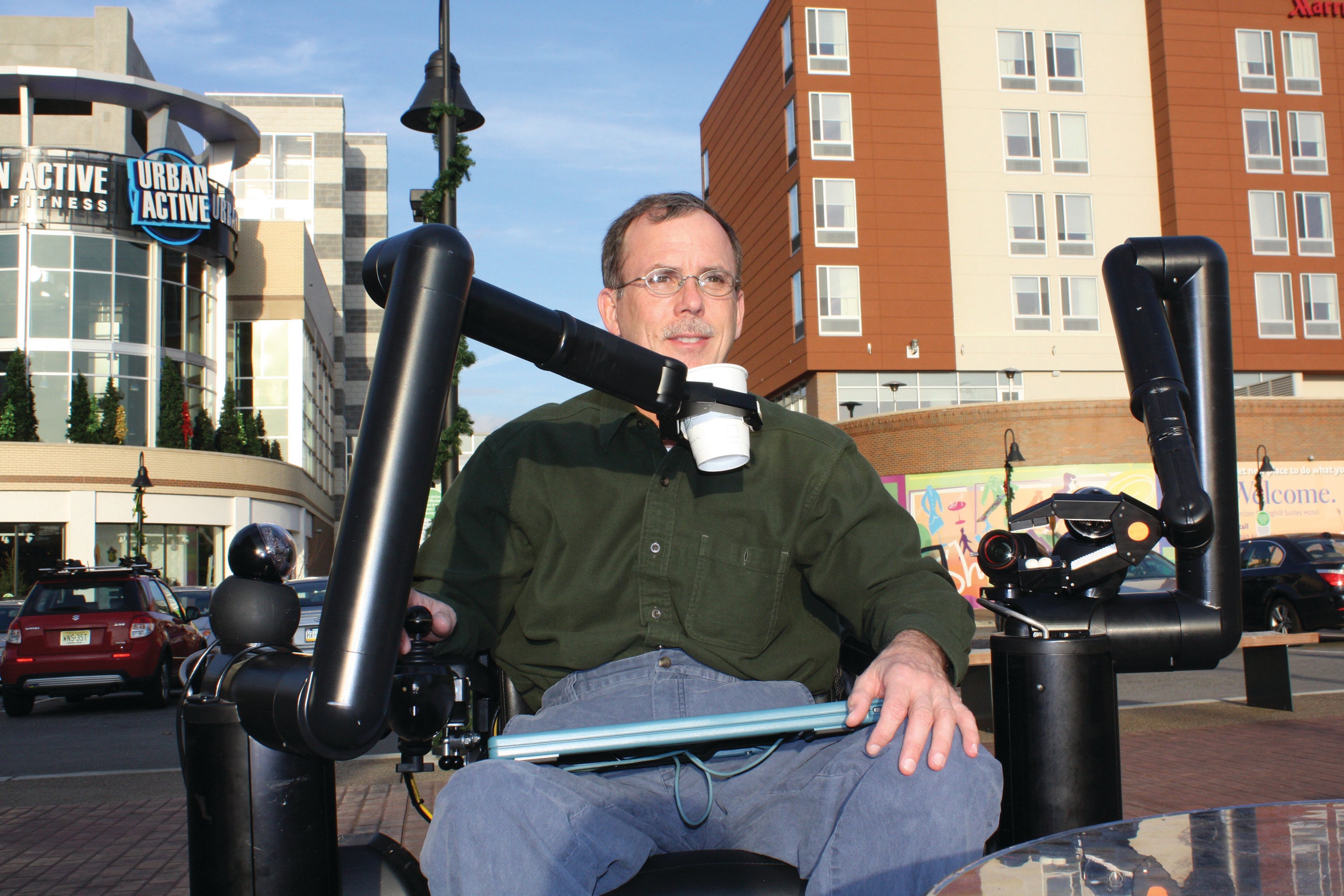 "That day changed my life, but I wouldn't change any of it," Cooper says today. "Who knows what path I would have taken otherwise. But you never get to go back and see what the alternative path would have been. You just have to give 100 percent to the path you are on."
"That day changed my life, but I wouldn't change any of it," Cooper says today. "Who knows what path I would have taken otherwise. But you never get to go back and see what the alternative path would have been. You just have to give 100 percent to the path you are on."
That path initially took Cooper back to his home state of California, where he was transferred to continue his recovery and to complete rehabilitation. Rosemarie Emans stayed in Germany to pursue her academic studies, but her heart remained with Cooper. She visited him the next summer and, before she returned home, the couple became engaged. They were married 18 months later.
Meanwhile, Cooper enrolled at California Polytechnic State University, San Luis Obispo, where his aptitude for problem-solving and creative thinking led him to study electrical engineering. Being a student with disabilities in the years before the American with Disabilities Act, Cooper faced challenges most students did not. He had to be carried up stairs to attend class, lab tables were too high for him, and because the classroom desks had chairs attached to them, he had to flip desks around and hunch over it to write.
It didn't take long for Cooper, along with several friends who were also wheelchair users, to begin researching wheelchair design and innovation. Back then, wheelchairs were heavy, manual, one-style-fits-all contraptions, much like standard hospital wheelchairs. Repetitive strain and rotator cuff injuries were common among users. So, the friends started to build their own wheelchairs, guided by the idea that the design should fit the needs of users: lighter materials, adjustable backrests, maybe even power controls. "We all had the feelings that things weren't ever going to change if we didn't do something about it," Cooper recalls.
By Summer 1986, he had earned bachelor's and master's degrees in electrical engineering. Within the next three years, he completed a doctoral degree in electrical and computer engineering, specializing in biomedical engineering and signals and systems. While attaining his PhD, he says, that's when he knew "this kind of innovation could provide me with a career path."
He went on to complete a post-graduate fellowship in rehabilitation engineering and science at a Veterans Affairs Rehabilitation Research and Development Center in Hines, Ill., and continued to conduct research there for several years. He also joined the faculty of California State University in Sacramento and, in 1990, was appointed director of its Human Engineering Laboratory and coordinator of its Rehabilitation Engineering Program.
His work continued to be noticed. In 1994, he got a call from the University of Pittsburgh, where he was recruited to be a visiting associate professor in rehabilitation science and technology in the Schools of the Health Related Professions. He launched the Human Engineering Research Laboratories (HERL) as the founding director in partnership with the VA Pittsburgh Health Care System, UPMC Health Systems, and Pitt's Schools of the Health Sciences and School of Medicine. Today, HERL is engaged in more than 70 research projects and has about 50 staff members, including engineers, rehabilitation specialists, robotics experts, physical therapists, and medical interns.
Cooper's own work incorporates bioengineering and robotics. His innovations in wheelchair design have made him a pioneer in the field, and HERL has produced inventions such as the Mobility Enhanced Robotic wheelchair, or MeBot, a lightweight, powered wheelchair that's able to self-level on uneven pavement and climb curbs. Much of HERL's wheelchair research explored strong yet lightweight composite materials, power and computer-controlled innovations, and advances in propulsions and mobility.
In August 2010, Cooper was featured in Popular Science for inventing one of 10 of "the most advanced human-assist bots from around the world." The story featured his Personal Mobility and Manipulation Appliance (PerMMA), which uses two robotic arms programed to help users with everyday tasks like cooking and dressing. The robotic arms are controlled with a touchpad, microphone, or joystick, depending on users' abilities. Last spring, Cooper received the robotics industry's highest honor, the Joseph F. Engelberger Award, which celebrated his career achievements and his innovations in assistive application of robotics.
Since arriving at Pitt in 1994, Cooper—who had been issued eight patents for his innovations, with more pending—has worked with and influenced students from high school to the post-doctoral level, representing 20 different countries. Many have returned to their home nations, taking with them the work and research inspired by Cooper, who also is an affiliated researcher with Pitt's McGowan Institute for Regenerative Medicine.
"Professor Cooper's work in human engineering rehabilitation is extraordinary for his genius ability with engineering, and his passion and devotion enable people with disabilities," says Jongbae Kim, who earned Pitt graduate degrees in rehabilitation science and worked closely with Cooper on a VA TeleRehabilitation project. Kim, who is a person with tetraplegia, now teaches and conducts research on rehabilitation and human engineering at Yonsei University in Korea and remains an adjunct professor in Pitt's Department of Rehabilitation Science and Technology. For nearly a decade, he has sought to improve wheelchair design and access for those in is home country.
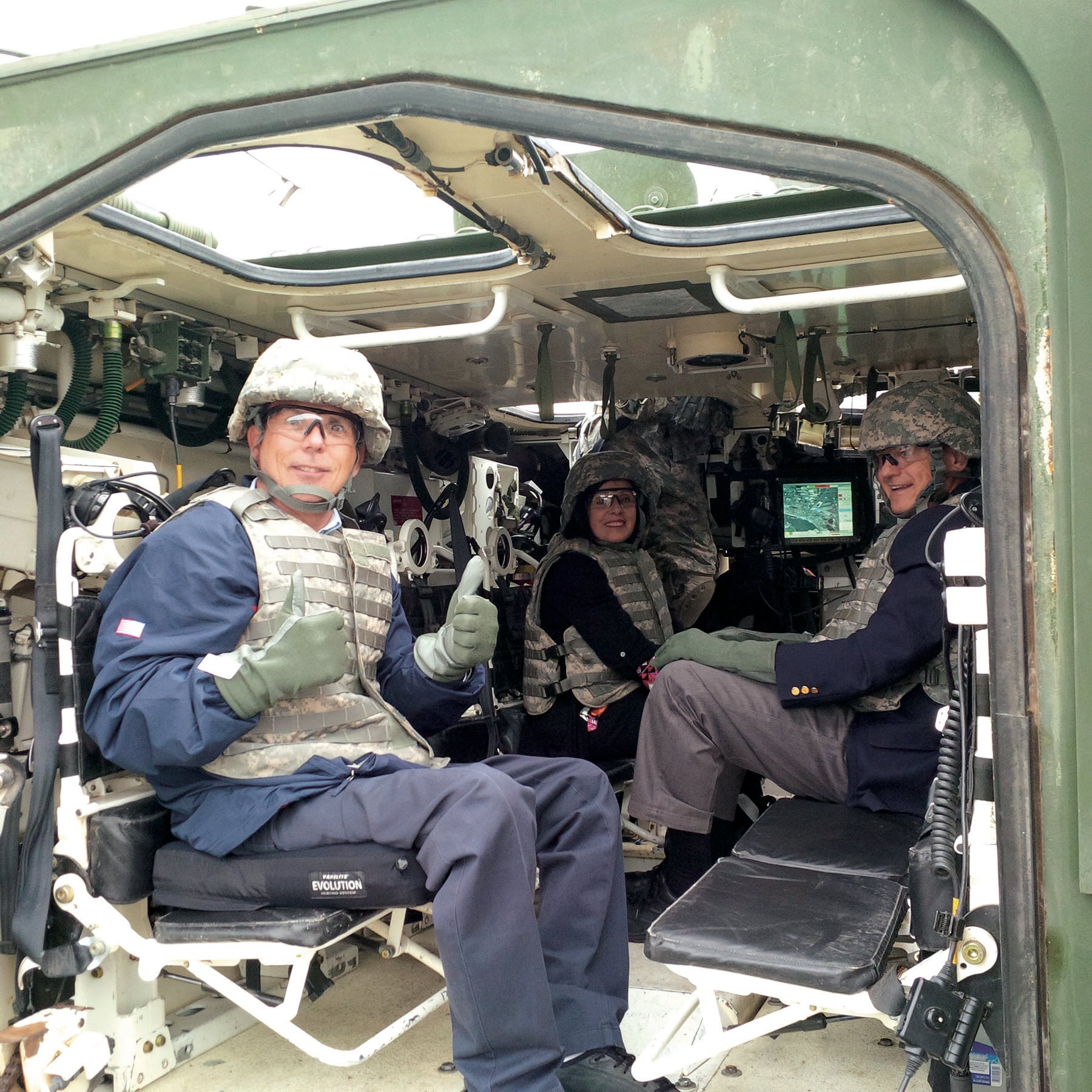 Cooper estimates there is a need for about 70 million wheelchairs in the world, but there are only about 20 million people worldwide who have access.
Cooper estimates there is a need for about 70 million wheelchairs in the world, but there are only about 20 million people worldwide who have access.
With the help of a recent $2.3 million grant, he and his colleagues at Pitt are developing an organization called the International Society of Wheelchair Professionals, which will create a global network by reaching out to experts, Pitt alumni, and others for collaboration across the globe. The aim is to ensure that wheelchairs and equipment get to the people and organizations that need them. The venture will also teach wheelchair repair and provide a higher level of equipment standardization, education, and oversight. "I've had the privilege of being connected globally to so many people, and it's exciting for me to see our work improving the lives of so many," says Cooper, who adds that the work being done at HERL has given him his life's mission. "The wheelchair standards we've contributed to have global impact, and we are opening up the world for people with severe disabilities."
That opening up of new possibilities includes athletics. Cooper is an avid wheelchair athlete who holds past national and world records at various distances in wheelchair racing, including more than 150 medals won through the years at the National Veterans Wheelchair Games. He competed at the 1988 Seoul Paralympics, earning a bronze medal on the USA team that won the 4 x 400 meter relay and, as an individual, placing 4th in the 10,000 meter race among top-caliber athletes.
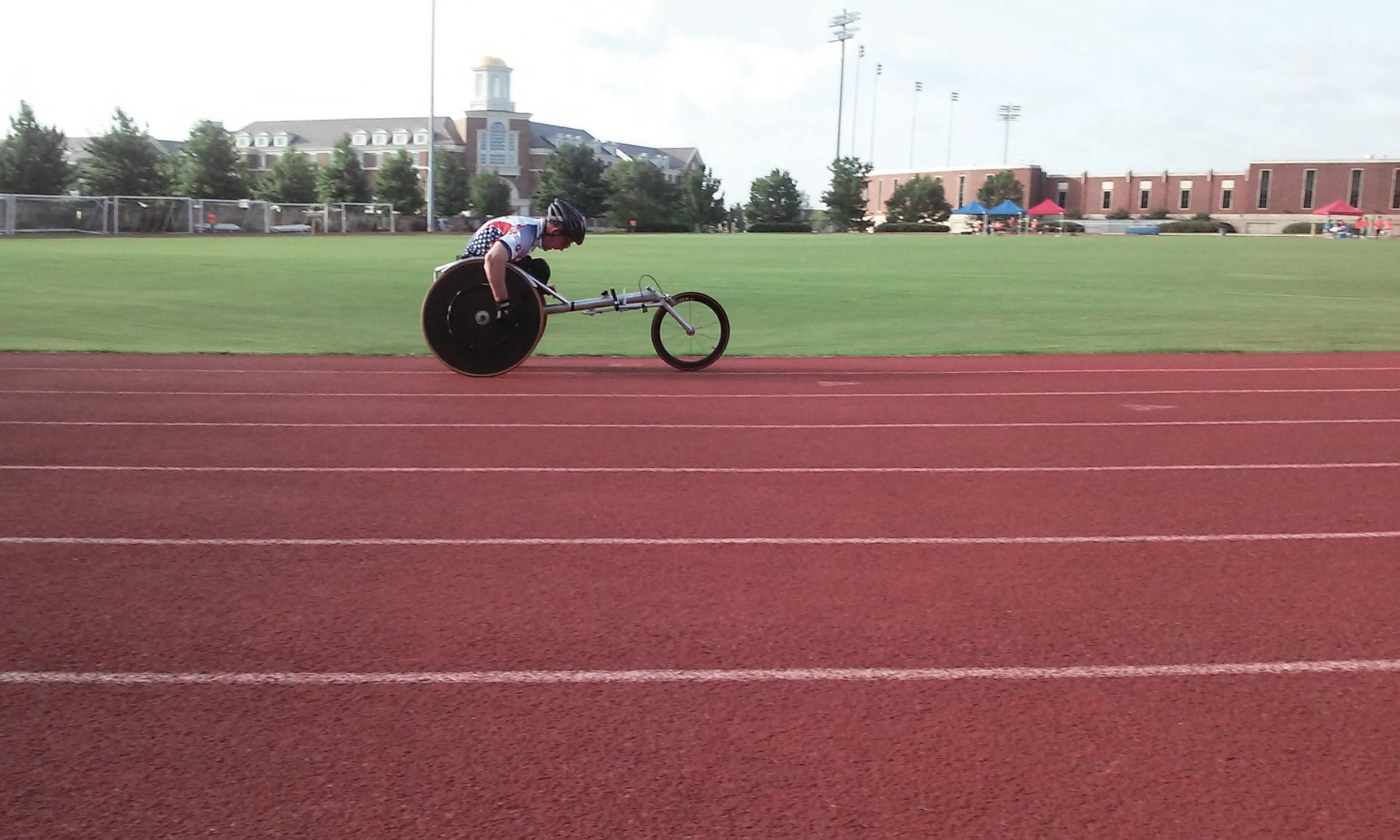 He discovered wheelchair racing during his years in college in California. "it was really exciting time because athletics had always been a big part of my life, and this was a way I could continue that," Cooper says.
He discovered wheelchair racing during his years in college in California. "it was really exciting time because athletics had always been a big part of my life, and this was a way I could continue that," Cooper says.
Even now, his typical day starts before 6 a.m., when he wakes to workout. When weather permits, he trains in his wheelchair on the roads near his West Deer Township home in the mornings. When darkness, snow, or ice prevail, he stays indoors and uses stationary rollers, which keep the chair in place but allow the wheels to spin. He still routinely racks up miles in marathons and other races, too, traveling around the country to compete. And, a Cheerios box featuring his image rests on a shelf in his Pitt office; he was one of several top athletes from the 2008 National Wheelchair Games to be selected for the honor.
"That man has very active expectations for himself and everyone around him," says Nate Bastien, and Pitt Honors College graduate who had Cooper as his academic advisor. "He knows what you are capable of, and he expects you to rise to the occasion, even if he has to drag you there."
With Cooper's encouragement, Bastien is now going to medical school at the Uniformed Services University in Maryland. Using input from wheelchair athletes and specific guidelines from the U.S. Olympic Committee, he was inspired by Cooper to create a frame to help people with disabilities compete in rifle sports.
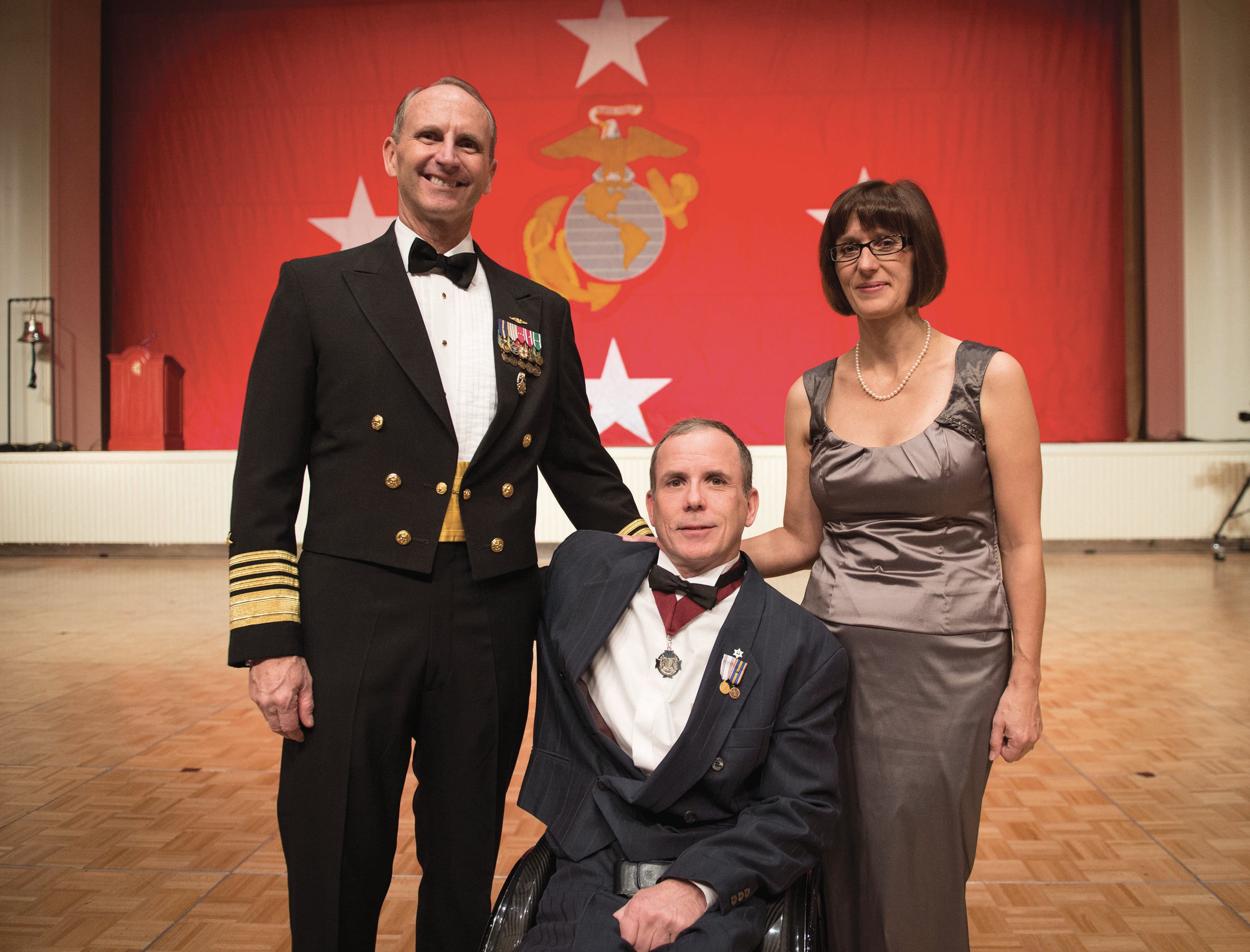 Cooper's gritty determination, coupled with his high expectations for himself and others, has also led to distinguished leadership roles for the Pitt professor. He is a director of the Paralyzed Veterans of America Research Foundation and a director, as well as a senior research scientist, at the Center of Excellence for Wheelchair and Related Technology. Last spring, he was appointed as Civilian Aide to the Secretary of the Army for Pennsylvania, which is one of the highest-ranking military appointment available to civilians.
Cooper's gritty determination, coupled with his high expectations for himself and others, has also led to distinguished leadership roles for the Pitt professor. He is a director of the Paralyzed Veterans of America Research Foundation and a director, as well as a senior research scientist, at the Center of Excellence for Wheelchair and Related Technology. Last spring, he was appointed as Civilian Aide to the Secretary of the Army for Pennsylvania, which is one of the highest-ranking military appointment available to civilians.
"His contributions to veterans in this region and across the country have been tremendous because he shows you that you can do whatever you want to do, you just have to work hard," says William Cole, a Pitt graduate who now lives and works in Washington, D.C. "That is so incredibly important, especially for veterans coming back from war and transitioning into academics." Cole was president of Pitt's Student Veterans Association, and Cooper still serves as the group's faculty advisor.
For his part, Cooper—who is the FISA and Paralyzed Veterans of America Chair and Distinguished Professor at Pitt—says all of his achievements and successes can be traced to three major milestones: Founding the HERL lab and training and motivating its researchers and students; embracing wheelchair sports to show paralyzed veterans they aren't confined to a life of simply living in a wheelchair; and leading the global endeavor for new and better technology to make wheelchairs safer, more durable, and more attainable to those who need them.
Not surprisingly, the list of awards and accolades bestowed on Cooper during his career is so extensive that people are often intimidated, says Rosemarie Emans Cooper, now his wife of 33 years. She is an assistant professor in Pitt's Department of Rehabilitation Science and Technology and director of the Center for Assistive Technology. "All of the titles and accomplishments are overwhelming," she says. "And then they meet me, and I imagine they think, 'Oh, good, he must be human after all.'"
Meanwhile, Cooper continues to grab headlines. In December 2014, he was named a Fellow of the National Academy of Inventors. Election to the NAI is a professional distinction reserved for pioneering academic inventors who "have made a tangible impact on quality of life, economic development, and the welfare of society."
Today, despite so many accomplishments already achieved, Cooper's future shines brighter than ever. He says that Army values—like discipline, leadership, and mission—remain hallmarks in his life and that he continues to apply lessons he learned long ago as an army sergeant in Germany. Ultimately, Cooper's goal is to see his innovations in action, to the see the work of HERL blossom everywhere.
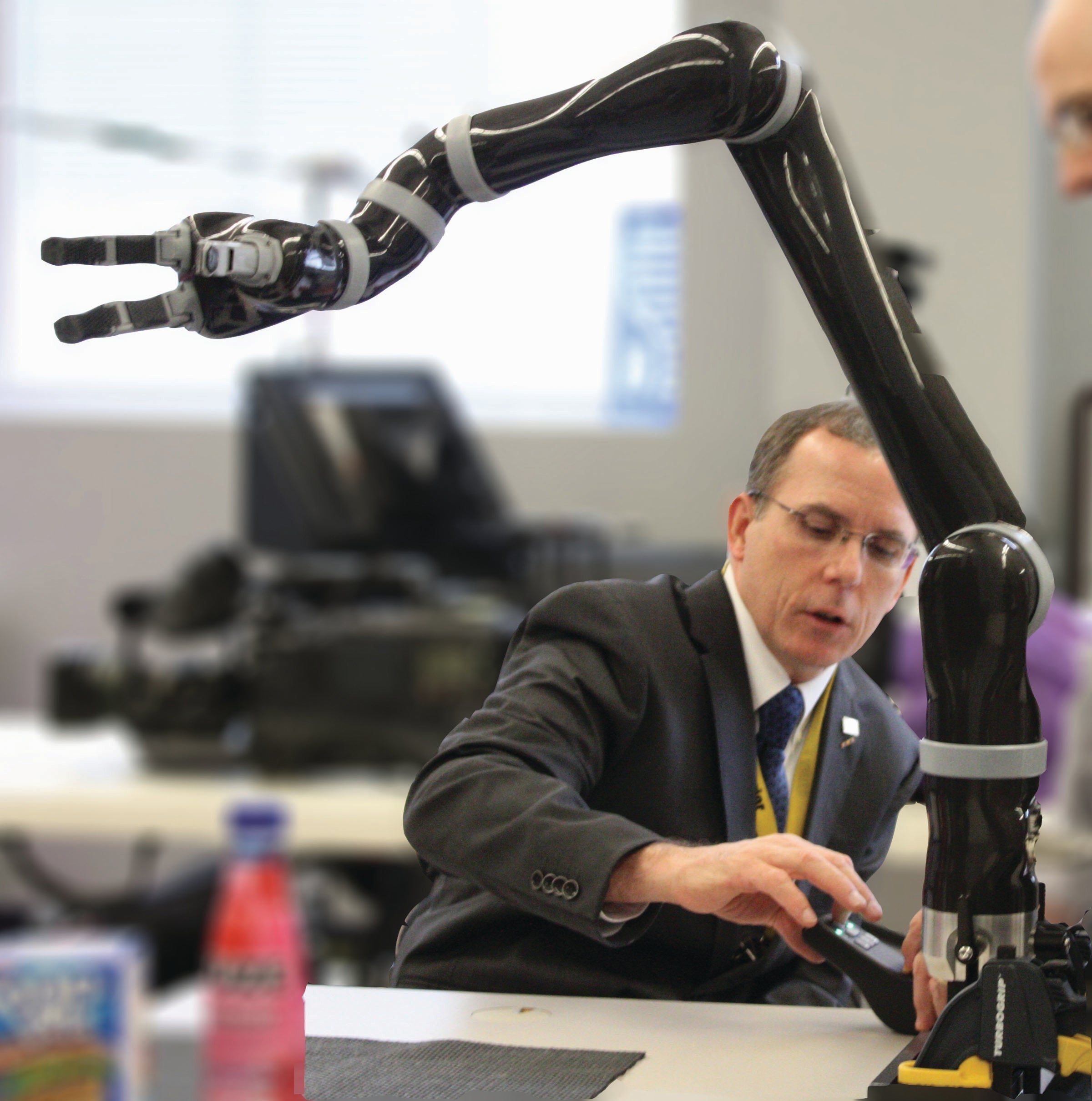 He envisions a world in which it will be commonplace for all people with disabilities to know they can get jobs and education, to lead fulfilling lives. Not just know it, but live it.
He envisions a world in which it will be commonplace for all people with disabilities to know they can get jobs and education, to lead fulfilling lives. Not just know it, but live it.
"I could have taken my injury and what happened to me and wallowed in it," says Cooper. "but that's not the way I want to be remembered. I want my life to have an impact on generations to come. We still have a lot of work ahead of us."

